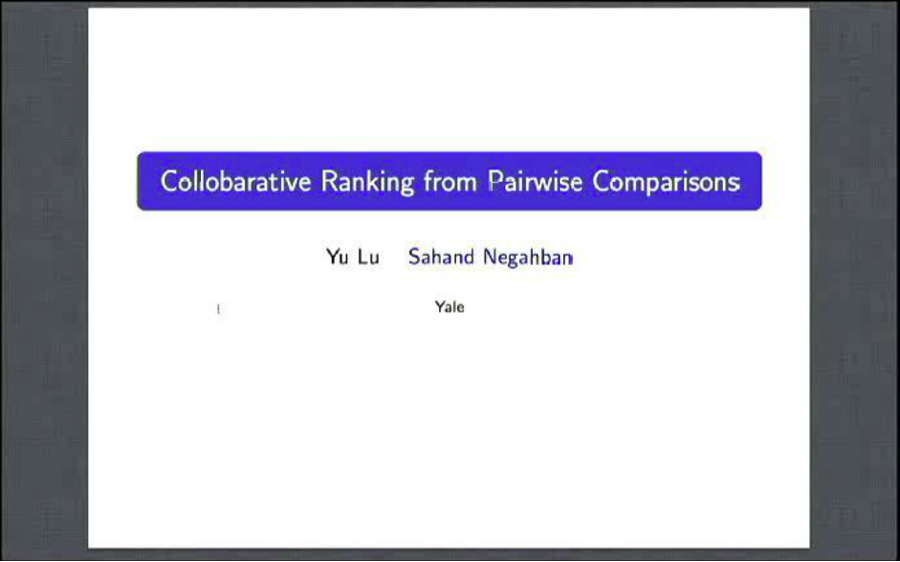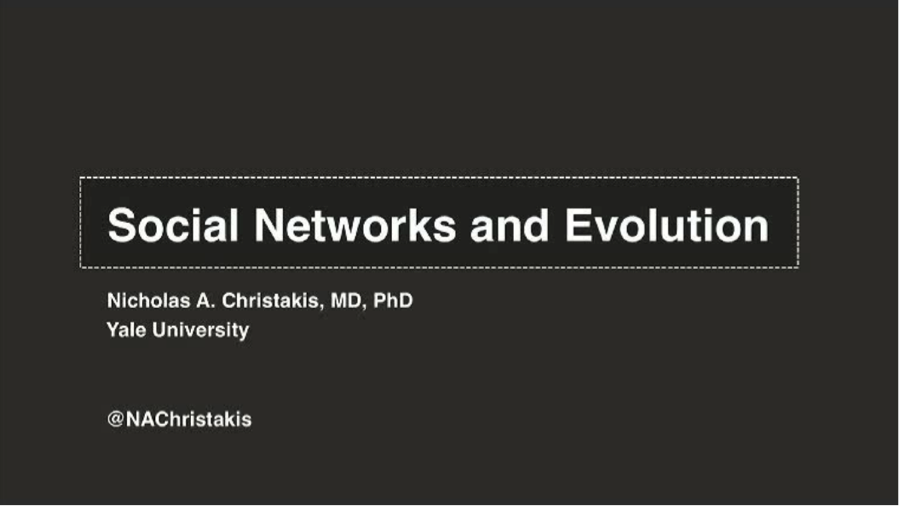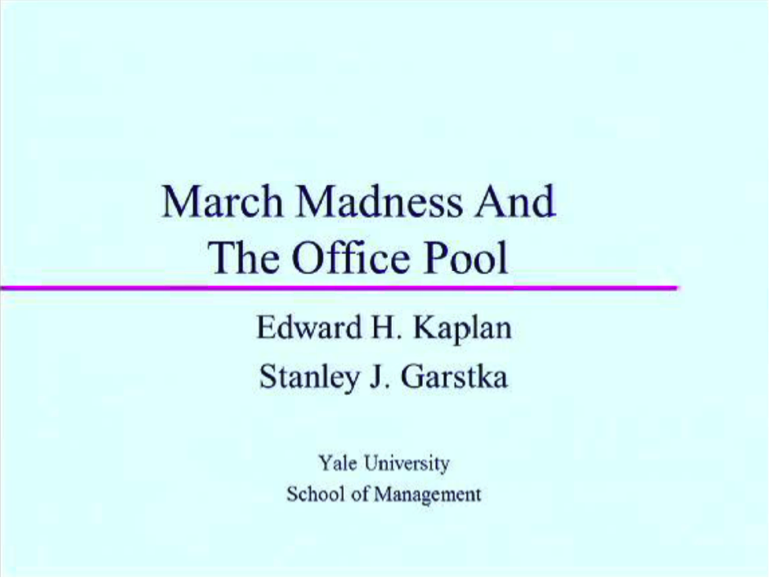programs
|
|
YINS Seminar Archives: Peter Bearman (Oct. 15, 2014)“The brain basis of person perception in real-world social networks”Speaker: Peter Bearman, Director of the Interdisciplinary Center for Innovative Theories and Empirics (INCITE), Cole Professor of Social Science, Co-Director of the Health & Society Scholars Program, Mellon Interdisciplinary Training Progrsm, and OHMA at Columbia University |
Meet YINS, 12/3/14: "Crowd Teaching" and “Geography as a determinant of and proxy for social relationships”“Crowd Teaching,” Amin Karbasi: How should we present training examples to learners to teach them classification rules? This is a natural problem when training workers for crowdsourcing labeling tasks, and is also motivated by challenges in data-driven online education. |
YINS Seminar Archives: Ali Jadbabaie (Jan. 14, 2015)“Dynamic Pricing in Social Networks: The Word of Mouth Effect”Speaker: Ali Jadbabaie, Alfred Fitler Moore Professor of Network Science Department of Electrical & Systems Engineering University of Pennsylvania
|
Meet YINS, 1/21/15: "Individualized Rank Aggregation using Nuclear Norm Regularization" and "Comparative Cognitive Development in Monkeys and Apes"Sahand Negahban: In recent years rank aggregation has received significant attention from the machine learning community. The goal of such a problem is to combine the (partially revealed) preferences over objects of a large population into a single, relatively consistent ordering of those objects. However, in many cases, we might not want a single ranking and instead opt for rankings based on individual preferences. We study a version of the problem known as collaborative ranking. |
YINS Seminar Archives: Bryan Graham (Feb. 11, 2015)“Empirical models of network formation with heterogenous agents”Speaker: Bryan Graham, Associate Professor of Economics at the University of CaliforniaThis talk will survey my recent work on empirical models of network formation. I will emphasize procedures which incorporate unobserved agent characteristics (i.e., heterogeneity). These characteristics may covary with observed agent attributes or policy variables of interest to the researcher. |
Meet YINS, 2/18/15: “Social Networks and Human Evolution" |
Meet YINS, 2/25/15: "Networks Amongst Consumers and Industrial Organization" |
Meet YINS, 3/4/15: "March Madness and the Office Pool" and "The Psychology of Social Network Transmission: Which Kinds of Contagion Are Unique to Humans?"“March Madness and the Office Pool:” March brings March Madness, the annual single elimination basketball tournament showcasing the best college teams in the country. Almost as mad are office pools. We describe the structure of single elimination tournaments, and show how to “fill in the brackets” to maximize the expected number of points in a pool. (Joint work with Stan Garstka, Yale School of Management) |
YINS Seminar Archives: Constantine Dovrolis (Apr. 1, 2015)“The hourglass (or bow-tie) effect in evolving hierarchical networks”Speaker: Constantine Dovrolis, Professor at the College of Computing of the Georgia Institute of Technology
|







